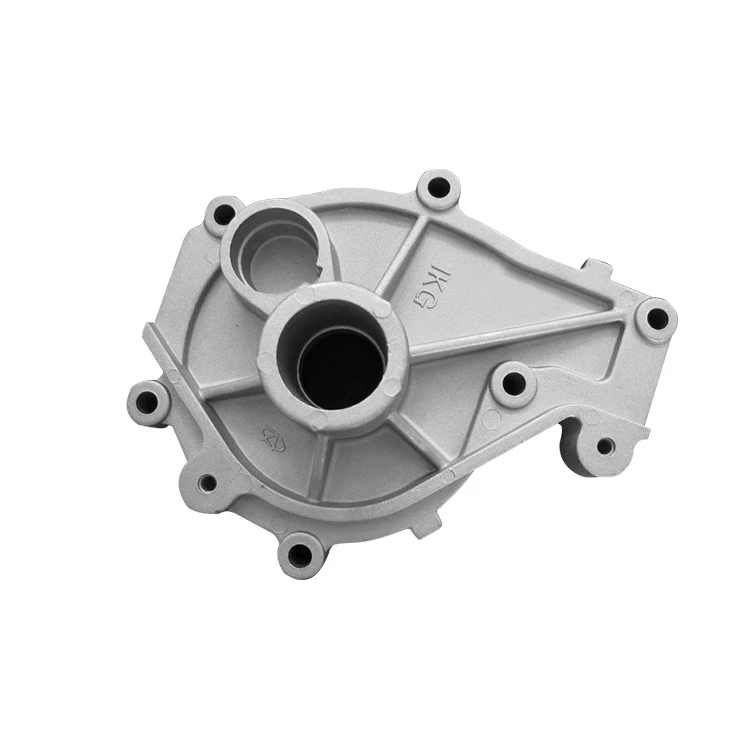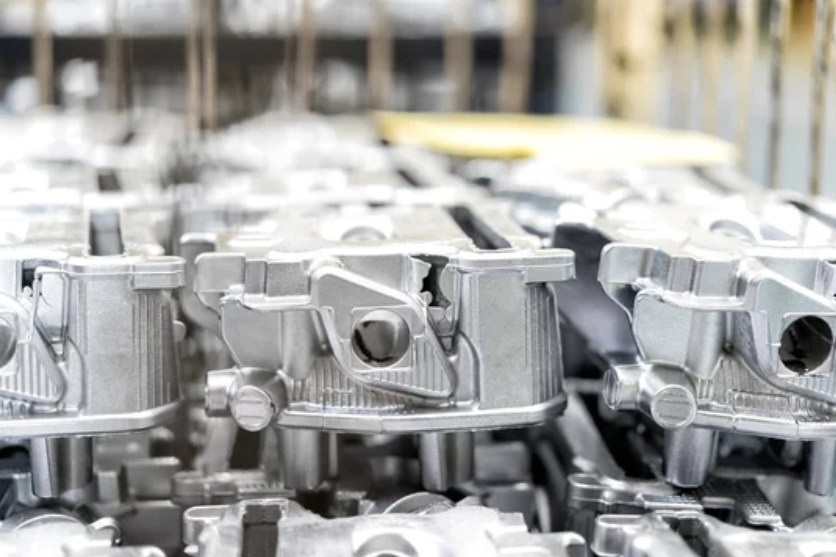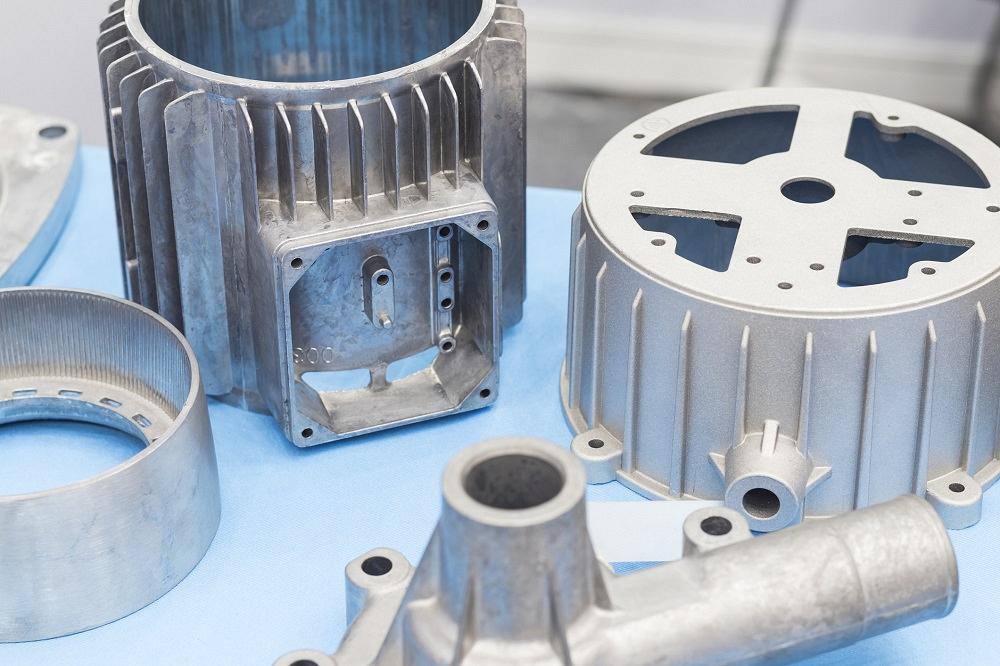The importance of aluminum casting in creating lightweight metal parts
Exploring the Innovative Processes Behind Modern Light Weight Aluminum Shop Procedures
Modern aluminum factory procedures are going through substantial improvement. Automation and AI are reshaping production methods, improving both effectiveness and precision. The combination of 3D printing is enhancing mold and mildew creation, while sustainability techniques are ending up being extra important. Each of these developments plays a crucial role in redefining the market. Nevertheless, the effects of these changes expand past mere manufacturing performance. What challenges and opportunities exist ahead for aluminum shops in this progressing landscape?
The Function of Automation in Aluminum Foundries

In addition, automation adds to improved security standards within the foundry setting. By moving harmful jobs to machines, human employees can concentrate on managerial functions and quality assurance, reducing the risk of mishaps. Furthermore, information analytics originated from automated procedures provide beneficial understandings into functional efficiency, leading to better decision-making and continuous enhancement. As the demand for aluminum products grows, the adoption of automation innovations will likely increase, additionally transforming the landscape of aluminum factory operations.
Advancements in Casting Technologies
Current improvements in casting innovations are transforming light weight aluminum factory procedures. Developments such as 3D printing integration, progressed alloy formulations, and automated process optimization are boosting efficiency and item high quality. These growths are crucial in satisfying the progressing demands of the sector.
3D Printing Assimilation
Integrating 3D printing innovation right into light weight aluminum foundry procedures has transformed traditional casting techniques, enhancing both effectiveness and precision. This ingenious technique enables for the rapid production of intricate mold and mildews and cores, considerably lowering lead times and material waste. By using additive manufacturing, factories can create intricate geometries that were difficult or formerly tough to accomplish with traditional strategies. The flexibility of 3D printing likewise makes it possible for fast layout adjustments, cultivating an extra agile manufacturing procedure. On top of that, this integration sustains making use of light-weight structures, which is progressively important in industries such as automobile and aerospace. As aluminum foundries remain to embrace 3D printing, they position themselves at the center of technical improvement, driving enhancements in item top quality and functional capacities.
Advanced Alloy Formulations
The development of advanced alloy formulas has substantially enhanced spreading modern technologies in light weight aluminum shop procedures. These formulations integrate numerous components, such as silicon, magnesium, and copper, to enhance mechanical residential properties and thermal resistance. By customizing the structure of aluminum alloys, suppliers can achieve details performance features that meet the needs of diverse applications, from auto parts to aerospace frameworks. Making use of advanced alloys likewise contributes to reduced weight and increased strength, which are vital variables in contemporary design. In addition, technologies in alloy advancement enable much better fluidity during casting, resulting in boosted surface coatings and minimized defects. On the whole, progressed alloy formulas represent a substantial jump onward, placing light weight aluminum shops to fulfill the progressing needs of various industries properly.
Automated Refine Optimization
Advancements in casting technologies have actually led the way for automatic procedure improvement in aluminum factory operations. By integrating innovative software application and real-time data analytics, shops can currently improve manufacturing processes and boost quality control. Automated systems keep an eye on variables such as cooling, temperature, and pressure rates, enabling immediate adjustments that decrease defects and waste. Additionally, artificial intelligence algorithms examine historic performance data to predict optimal settings, therefore raising effectiveness and decreasing cycle times. Robotics also play a considerable function, handling repeated jobs that boost safety and security and precision. In general, these advancements not just drive operational performance yet likewise allow shops to satisfy the growing need for high-grade aluminum parts in numerous sectors.
Smart Production and Industry 4.0 Assimilation
The integration of Smart Manufacturing and Industry 4.0 within light weight aluminum factories is changing functional efficiency. By leveraging IoT technologies, automation, and robotics, shops can enhance production procedures and decrease downtime. In addition, data analytics offers important insights that boost decision-making and drive continual enhancement.
IoT in Shop Operations
As suppliers increasingly embrace the Internet of Points (IoT), shop operations are experiencing a transformative shift in the direction of smart production and Industry 4.0 combination. aluminum casting. IoT innovations allow real-time data collection and evaluation, boosting decision-making processes and operational performance. Sensing units and linked tools keep track of devices efficiency, product usage, and environmental problems, permitting aggressive upkeep and resource optimization. This connection promotes a much more active production atmosphere, where changes can be made promptly in feedback to market demands. Furthermore, IoT helps with boosted traceability and quality assurance, as information from the entire production cycle can be easily accessed and examined. Generally, the integration of IoT in shop operations significantly boosts productivity and drives technology in light weight aluminum manufacturing processes
Automation and Robotics Assimilation
Automation and robotics assimilation is reinventing aluminum shop operations by enhancing effectiveness and accuracy. This transformative strategy improves procedures such as molding, putting, and completing, decreasing human mistake and raising outcome uniformity. By utilizing sophisticated robotic systems, shops can achieve higher production rates while keeping stringent quality criteria. Automated systems likewise enable real-time surveillance and adaptive control, permitting swift adjustments to production parameters. Furthermore, the assimilation of robotics reduces labor expenses and alleviates safety dangers related to manual handling of liquified metal. As shops embrace wise manufacturing principles integral in Sector 4.0, the synergy in between automation and robotics solidifies their competitive side, leading the way for lasting development and advancement in the light weight aluminum spreading market.
Information Analytics for Effectiveness
Using data analytics considerably improves effectiveness within light weight aluminum foundry operations, straightening with smart production and Sector 4.0 principles. By leveraging real-time information collection and evaluation, factories can keep an eye on production processes, forecast devices failures, and enhance source allowance. This data-driven technique promotes insightful decision-making, allowing managers to enhance and identify traffic jams operations. Furthermore, anticipating analytics equips factories to anticipate market demands, thus decreasing waste and guaranteeing prompt product delivery. Combination of information analytics with IoT tools improves functional visibility, fostering a proactive maintenance society. Eventually, applying these advanced logical methods not only boosts performance however likewise drives innovation, placing light weight aluminum foundries to meet the progressing needs of the market while preserving affordable sides in a swiftly changing landscape.
Sustainable Practices in Light Weight Aluminum Casting
While the light weight aluminum casting sector has generally faced ecological difficulties, numerous foundries are currently embracing sustainable practices to minimize their influence (Aluminum Casting Company). A substantial emphasis has actually gotten on recycling aluminum scrap, which not just reduces waste yet additionally conserves power contrasted to main light weight aluminum manufacturing. Ingenious melting innovations, such as induction heaters, improve energy efficiency and reduced greenhouse gas discharges
In addition, shops are implementing closed-loop water systems to minimize water consumption and lower thermal pollution. Using green binders in mold-making processes is obtaining traction, additional decreasing unsafe discharges.
Additionally, some facilities are purchasing eco-friendly power resources to power operations, straightening with international sustainability objectives. By integrating these techniques, the light weight aluminum casting sector is progressing towards a much more ecologically responsible future, demonstrating that economic development can exist side-by-side with eco-friendly stewardship - Aluminum Casting Company. These efforts show a commitment to sustainability and the significance of environmental liability in manufacturing
Top Quality Control Innovations
As the light weight aluminum spreading industry advances towards sustainability, the significance of quality assurance innovations ends up being significantly noticeable. Modern aluminum foundries are embracing sophisticated modern technologies to enhance their quality control procedures. Strategies such as real-time monitoring and data analytics allow producers to find variances and defects early in the manufacturing cycle. Executing automatic evaluation systems furnished with maker discovering algorithms assurances that products meet strict high quality standards while lessening human mistake.
Additionally, the assimilation of non-destructive testing techniques, such as ultrasonic and radiographic evaluations, provides deeper insights into the honesty of castings without harming the material. These developments not just improve product dependability but likewise decrease waste, straightening with sustainability goals. Additionally, the adoption of standardized high quality structures helps simplify operations across various foundries, assuring consistency in result. Collectively, these improvements are reshaping quality assurance, promoting a society of quality within the aluminum spreading field.
Future Fads in Aluminum Shop Procedures
What innovations lie ahead for light weight aluminum factory procedures? The future of aluminum shops is positioned for improvement via advancements in automation, man-made intelligence, and sustainable techniques. The assimilation of robotics and automated systems is expected to enhance performance and accuracy in the casting procedures, decreasing human error and labor prices. Furthermore, AI-driven analytics will certainly allow real-time surveillance and anticipating maintenance, optimizing operational efficiency and reducing downtime.
Sustainability remains a centerpiece, with factories progressively adopting environmentally friendly practices, such as utilizing recycled aluminum and creating low-emission melting innovations. Technologies in 3D printing are also prepared for to transform mold-making, allowing for complicated geometries and reduced material waste. As the industry welcomes digitalization, data-driven decision-making will certainly come to be essential, making it possible for foundries to respond promptly to market needs. Collectively, these fads guarantee to redefine aluminum foundry operations, making them more Aluminum Foundry effective, sustainable, and versatile to future obstacles.

Often Asked Inquiries
What Security Procedures Are Applied in Aluminum Shop Operations?
Light weight aluminum foundry operations carry out various safety and security procedures, including individual safety equipment, air flow systems to handle fumes, regular safety training, emergency reaction strategies, and rigid tracking of temperature and devices to stop crashes and assurance worker safety.
Exactly How Do Factories Manage Labor Force Educating for New Technologies?

What Materials Are Frequently Recycled in Aluminum Foundries?
Light weight aluminum shops generally recycle scrap aluminum, consisting of post-consumer items like drink canisters, automobile parts, and building and construction products. This recycling procedure reduces waste and preserves resources, adding to a more lasting aluminum production industry.
How Does Aluminum Spreading Effect the Environment?
Light weight aluminum casting influences the setting via energy-intensive procedures, greenhouse gas exhausts, and potential regional pollution. Nonetheless, improvements in reusing and lasting methods can minimize these results, promoting an extra eco-friendly technique to light weight aluminum production.
What Are the Normal Lead Times for Aluminum Spreading Projects?
Regular lead times for aluminum spreading jobs differ substantially, generally varying from 2 to 6 weeks. Aspects influencing these timelines consist of intricacy, order size, and product accessibility, impacting total manufacturing schedules in foundry procedures.
Automation increasingly plays a vital function in aluminum shops, enhancing performance and accuracy in the production procedure. Innovations in casting innovations have actually paved the means for automated procedure improvement in aluminum shop procedures. Utilizing information analytics considerably enhances performance within aluminum shop procedures, lining up with clever production and Market 4.0 concepts. A significant emphasis has actually been on recycling light weight aluminum scrap, which not only reduces waste but additionally conserves energy contrasted to main light weight aluminum manufacturing. Light weight aluminum foundries commonly reuse scrap light weight aluminum, including post-consumer products like drink canisters, automotive parts, and building and construction materials.